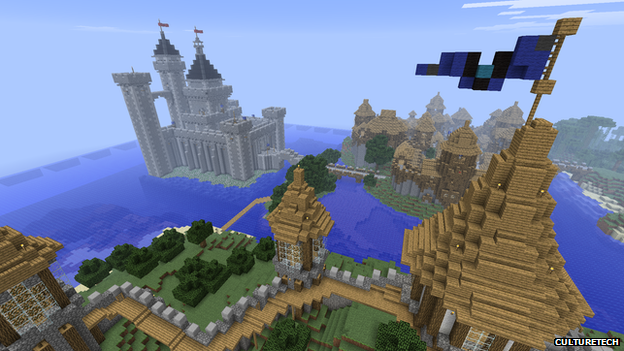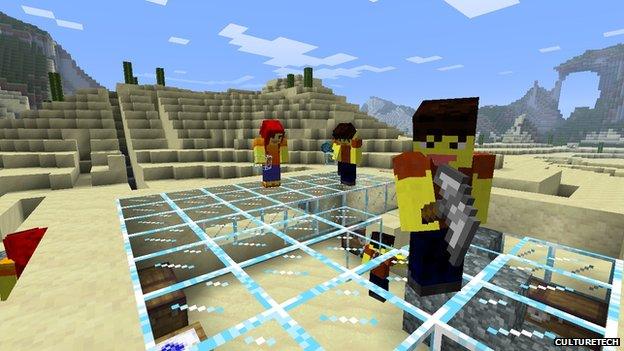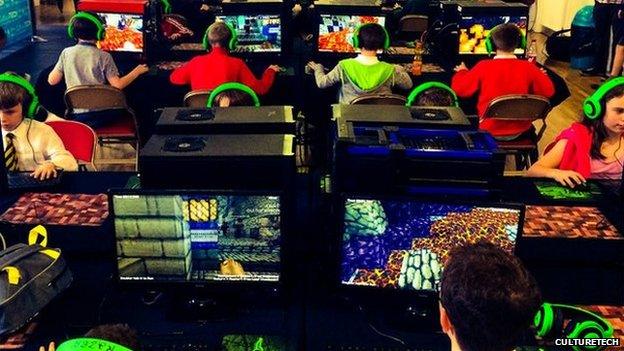How Derry school is using Minecraft to teach history
- Published

Schools can use a version of Minecraft in lessons to help teach subjects such as history and art
It is one of the most addictive video games in the world, with millions of users playing it for hours on end.
Now schoolchildren in Northern Ireland will be playing Minecraft in their classrooms as part of a project devised by Londonderry-based innovation festival CultureTECH.
Minecraft allows players to create their own world which they are then free to explore.
Secondary-schools will use MinecraftEdu, a special version appropriate for the classroom, in lessons to help teach traditional subjects such as history and art.
CultureTECH chief executive Mark Nagurski said the overwhelming response to Minecraft events at last year's festival sparked the idea.
"We spent a couple of months talking with the MinecraftEdu guys who showed us the content that could be produced, so we decided to take a punt," he says.
"We need more kids getting into STEM subjects (science, technology, engineering and mathematics) and coding if we are to build a pipeline to meet the increasing demand for jobs in the technology sector, and this is a great way for children to get into that."

Minecraft allows players to create their own world which they are then free to explore
So, how can playing a video game during class-time benefit children?
St Joseph's Boys' School in Derry has been running a pilot of the scheme as part of a collaboration between its history and IT departments.
The game was offered to the school for free and history teacher Darren Currie says that made it "an opportunity we couldn't resist, especially when school budgets are so tight".
His pupils are using the game to construct virtual replicas of Plantation period sites such as Brackfield bawn outside Derry and Monea Castle in County Fermanagh.
"The Plantation period is a part of history that can be quite dry, so anything that helps pupils take it in better has to be a good thing," he explains.
"The boys create these structures, label them and then work out and explain why, for example, this house was fortified, why these gun turrets are positioned where they are, and gain an understanding of the period as a result."

The Minecraft initiative is expected to reach up to 50,000 children in schools in Northern Ireland annually
An assessment is the summer will determine whether the scheme has been a success, but Mr Currie says the benefits are already beginning to show.
"I work with a mixed ability group and this has helped with their motivation. Pupil engagement has increased and there is a collaborative and competitive element to it, too.
"The pupils work in groups to build the best bawn, and that will over time help with their employability skills - not only are they gaining computing and programming skills, but this is also team-building."
Mr Currie is encouraging other schools to follow St Joseph's lead.
"What we are doing is just the tip of the iceberg - there are so many different applications for different subject areas.
"There does have to be a structure and outcomes must be clear, and that way pupils will take over the learning themselves."